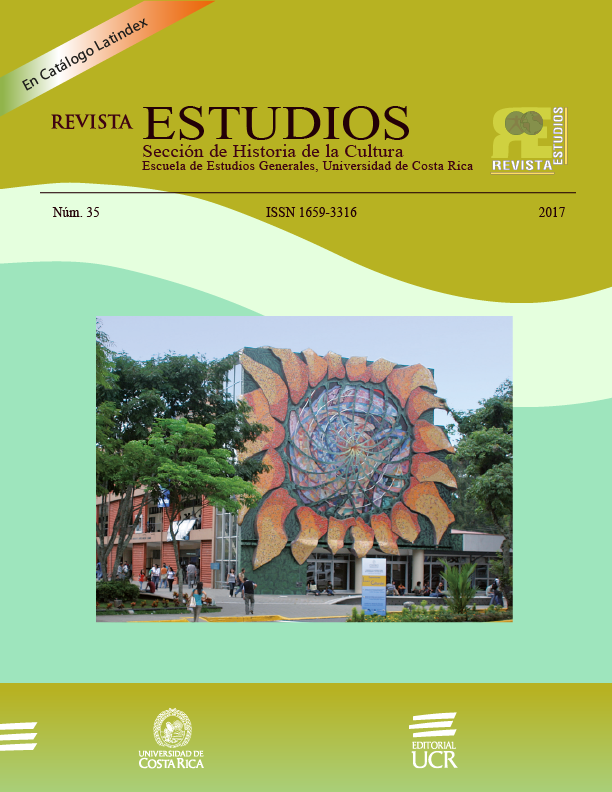Abstract
This paper analyzes the chemical substances known as teratogens, their consequences in the human fetus, and the knowledge level of 16 and 17 year-old students from the Bilingual High School of Grecia about the aforementioned agents. Alcohol, tobacco, and street drugs are excluded from this work due to the abundant exposure against human intake of these during pregnancy. The purpose was to demonstrate the cohort’s understanding level about the topic, outline which chemicals are dangerous, apply a questionnaire to determine how much they know, and identify the daily-use products which contain these elements. In conclusion, teratogenic materials are present in a wide variety of artificial goods. Exposure to these may harm the neonate in formation. The majority of youngsters who participated do not know what a teratogen is, its implications in pregnancy, how to recognize it, and they live in areas that could be affected by teratogenic ingredients.
References
Adams, T., Kelsberg, G., Safranek, S., y Neher, J. (2016). Q/Does caffeine intake during pregnancy affect birth weight? Journal Of Family Practice, 65(3), 205-206.
AFOP Health & Safety. (Productora). (2016). Pesticide exposure and pregnancy. (Archivo de video). Recuperado de
https://www.youtube.com/watch? v=chN5biQJxHY
Bastow, B. et al. (2016). Teratology and drug use during pregnancy. Medscape. Recuperado de http://emedicine.medscape.com/article/260725-overview#a2
Bolado-García V., Lunagómez S., Palma J., Santiago-Roque I., y Soto M. (2016). Aspectos relevantes conocidos, desconocidos y controvertidos sobre las malformaciones congénitas. Revista Electrónica Medicina, Salud y Sociedad, 6(2).
Centers for Disease Control and Prevention. (2016). Medications and pregnancy. Centers for Disease Control and Prevention. Recuperado de https://www.cdc.gov/pregnancy/meds/
Centers for Disease Control and Prevention, National Biomonitoring Program. (2016). Phthalates. Centers for Disease Control and Prevention. Recuperado de https://www.cdc.gov/biomonitoring/phthalates_factsheet.html
Cortes, P. (Productora). (2016). Teratogens child development. (Archivo de video). Recuperado de https://www.youtube.com/watch?v=EWV8bPGjadM
Finanzas Prácticas. (2017). Hábitos de consumo. Finanzas Prácticas. Recuperado de https://www.finanzaspracticas.com.co/finanzaspersonales/presupuesar/compras/
/habitos.php
Geraghty, E., et al. (2014). Estudio de la UC Davis MIND Institute encuentra asociación entre la exposición materna a los pesticidas agrícolas, el autismo en los hijos. UC Davis Health. Recuperado de https://www.ucdmc.ucdavis.edu/publish/news/newsroom/9006
Gunatilake, R. y Patil, A. (2016). Drugs in Pregnancy. Merck Manual. Recuperado de http://www.merckmanuals.com/professional/gynecology-and-obstetrics/drugs-in- pregnancy/drugs-in-pregnancy
McNight, C. (2014). List of foods & drinks that contain caffeine. Livestrong. Recuperado de http://www.livestrong.com/article/245410-list-of-foods-drink-that-contain- caffeine/
Phenylketonuria. (s.f). En The Genetics Home Reference. Recuperado de https://ghr.nlm.nih.gov/condition/phenylketonuria
Phillips, S. (2014). Food additives to avoid during pregnancy. Livestrong. Recuperado de http://www.livestrong.com/article/117114-additives-avoid-during-pregnancy/
Pope, E., et al. (2014). Sugar substitutes during pregnancy. Canadian Family Physician, 60(11), pp. 1003-1005. Recuperado de https://www.ncbi.nlm.nih.gov/pmc/articles/PMC4229159/
Prada, C. (2016). Los Ftalatos. Hogar Sin Tóxicos. Obtenido de http://www.hogarsintoxicos.org/
Programa de las naciones unidas para Costa Rica (2016). PNUD. Recuperado de http://www.cr.undp.org/content/dam/costa_rica/docs/Atlas2016/cr_pnud_ Infografico_ATLAS.pdf
Weinberger, B., et al. (2014). Inflammatory Effects Of Phthalates In Neonatal Neutrophils. The National Center for Biotechnology Information. Recuperado de https://www.ncbi.nlm.nih.gov/
Wypych, G. (2017). Handbook of plasticizers. Toronto: ChemTec Publishing.

